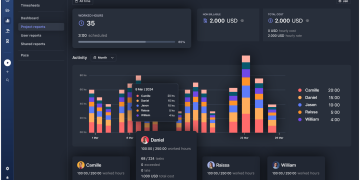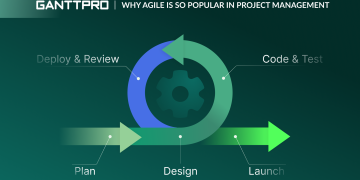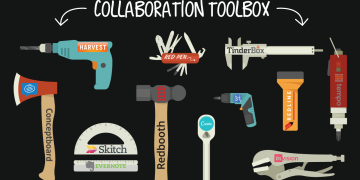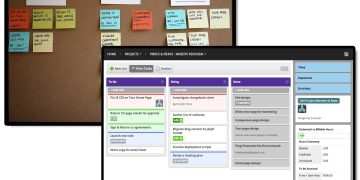In an era dominated by complex project management tools and methodologies, the concept of simplicity is often overlooked. Yet, one tool—Basecamp—has championed simplicity and streamlined project management, proving that less can indeed be more. But is it truly the key to better project delivery? Let’s explore how Basecamp’s minimalistic approach might hold the secret to more efficient, productive, and even more enjoyable project management.
The Complexity of Project Management Tools
Before diving into the specifics of Basecamp, it’s important to understand the landscape of project management tools. The modern era has brought with it an explosion of platforms designed to help businesses manage their projects. These tools are often packed with features—task lists, timelines, Gantt charts, resource management dashboards, communication channels, and the list goes on. While all these features can be incredibly useful, they can also overwhelm users, creating a barrier to efficient project management.
Many tools, such as Asana, Jira, and Microsoft Project, are known for their complexity. While they provide in-depth functionality, they often require extensive onboarding and mastery to utilize effectively. This steep learning curve can delay the start of a project, create frustration among team members, and even distract from the core focus—delivering results.
In contrast, Basecamp takes a radically different approach.
The Basecamp Philosophy: Keep It Simple
Basecamp is an intuitive, user-friendly platform designed to minimize friction and focus on what truly matters: getting work done. The platform offers essential tools such as to-do lists, calendar scheduling, file sharing, and messaging—but without the clutter and excessive features that other platforms boast.
At its core, Basecamp is built on the idea of simplicity and clarity. The interface is clean, with only the essential functions prominently displayed. There are no complex Gantt charts, intricate resource management tools, or overwhelming integrations. Instead, it’s a platform that emphasizes collaboration and communication, removing the noise that can often bog down a project.
Why Simplicity Matters in Project Delivery
The value of simplicity in project management isn’t just theoretical—it’s practical. Research has shown that overly complex tools can lead to confusion and inefficiency, while simpler tools enhance productivity by enabling teams to focus on their work rather than the platform itself.

- Reduced Cognitive Load: When team members don’t have to navigate through an overwhelming array of features and settings, they can focus more on their tasks. This reduction in cognitive load means fewer mistakes, less stress, and ultimately, a more productive work environment.
- Faster Onboarding: Tools with a steep learning curve require time and effort to get up to speed. Basecamp, however, offers an intuitive interface that allows new users to start using the tool immediately. This ease of use leads to faster adoption, reducing downtime and speeding up project kickoffs.
- Clear Communication: Communication is often cited as one of the most critical factors in successful project delivery. With Basecamp, communication is centralized in one place. Team members can comment on tasks, message each other, or discuss project updates in a straightforward manner. This simplicity reduces the risk of miscommunication and ensures everyone is on the same page.
- Streamlined Task Management: Basecamp uses to-do lists to break down tasks into manageable steps. Unlike more complex tools that require setting up various task dependencies, timelines, and resources, Basecamp’s approach is refreshingly straightforward. Team members can see what’s expected of them, when it’s due, and how it relates to the bigger picture without unnecessary distractions.
- Less Administrative Overhead: Because Basecamp is designed for simplicity, project managers spend less time fiddling with settings, generating reports, or updating project statuses manually. Instead, they can focus on leading their teams and making decisions that directly impact project success.
The Hidden Power of “No Features”
One of Basecamp’s most interesting features is its lack of features—what the founders call the “power of no features.” By not offering unnecessary tools or integrations, Basecamp encourages users to focus on the essentials. This can be seen as a deliberate choice to avoid “feature bloat,” which often leads to distraction and confusion.
For instance, while some tools might provide a wide array of third-party integrations, Basecamp limits its integrations to only a handful of critical tools—such as Google Drive or Slack—allowing teams to work in a simplified ecosystem without becoming dependent on a dozen different systems.
This minimalist approach helps prevent the feature overload that plagues other platforms, giving teams the freedom to focus on the work itself rather than managing a toolset. By saying “no” to unnecessary features, Basecamp creates a clearer, more focused environment for collaboration.
The Psychological Benefits of Simplicity
Beyond productivity and efficiency, simplicity also has a profound psychological impact. When a tool is simple to use, users feel more in control, which reduces anxiety and increases engagement. When there are fewer distractions, team members can direct more mental energy towards problem-solving and creativity.
Moreover, a clean, simple interface can improve the user experience, making it easier to track progress and stay motivated. This psychological clarity can also foster better team morale, as there are fewer hurdles between team members and their goals.
The Case for Fewer Tools
In the world of project management, more isn’t always better. Basecamp’s approach also challenges the idea that you need a different tool for every aspect of project management. In many organizations, project management involves using multiple tools for different purposes—Slack for communication, Trello for task management, Dropbox for file sharing, and so on.
Basecamp consolidates all of these functions into one platform, streamlining the process and reducing the need to constantly switch between apps. This all-in-one approach can increase productivity by minimizing distractions and keeping everyone in the same space.

Furthermore, consolidating tools can reduce the administrative burden of managing multiple systems, preventing important information from getting lost or siloed. Instead of having to check various platforms for updates or task statuses, Basecamp’s central hub provides a unified view of the project’s progress.
Basecamp’s Impact on Team Collaboration
Collaboration is one of the most critical elements of successful project delivery. Effective teamwork requires seamless communication, clear task delegation, and a shared understanding of the project’s goals and timeline.
Basecamp promotes collaboration through a few simple mechanisms:
- Real-Time Communication: The messaging feature allows teams to communicate in real time, whether it’s a quick check-in or a deeper discussion about a project milestone.
- Task Visibility: Basecamp’s to-do lists make it clear who is responsible for each task and when it’s due, helping teams stay organized and focused.
- File Sharing: Teams can upload and share files directly in the context of tasks, making it easy to access relevant materials without digging through emails or separate file-sharing services.
- Project Transparency: Basecamp’s central hub ensures that everyone involved in a project has visibility into its progress. This transparency fosters accountability and helps prevent issues from going unnoticed until it’s too late.
Can Simplicity Scale?
While Basecamp’s simplicity is a clear advantage for smaller teams or projects, the question arises: can this approach scale to larger, more complex projects or organizations?
The short answer is yes—but with a few caveats. Basecamp’s streamlined functionality may not be as feature-rich as some of its competitors, and organizations managing highly complex projects with extensive resources or dependencies might need to supplement Basecamp with other tools.
However, for many teams, Basecamp offers a flexible framework that can scale with the project’s needs. It’s not a one-size-fits-all solution, but rather a platform that allows teams to manage projects without getting bogged down in unnecessary complexity.
Conclusion: Is Simplicity the Key to Better Project Delivery?
Basecamp’s simplicity is a powerful antidote to the complexity that often bogs down project delivery. By focusing on essential features, reducing cognitive load, and promoting clear communication, Basecamp enables teams to work more efficiently and collaboratively. In many cases, its minimalist approach can lead to faster project completion, fewer mistakes, and better overall results.
While it may not be the perfect fit for every team or project, Basecamp’s emphasis on simplicity offers a refreshing alternative to the crowded and feature-heavy world of project management tools. In the end, it’s not about how many features a tool has, but how well it helps you get the job done.






















